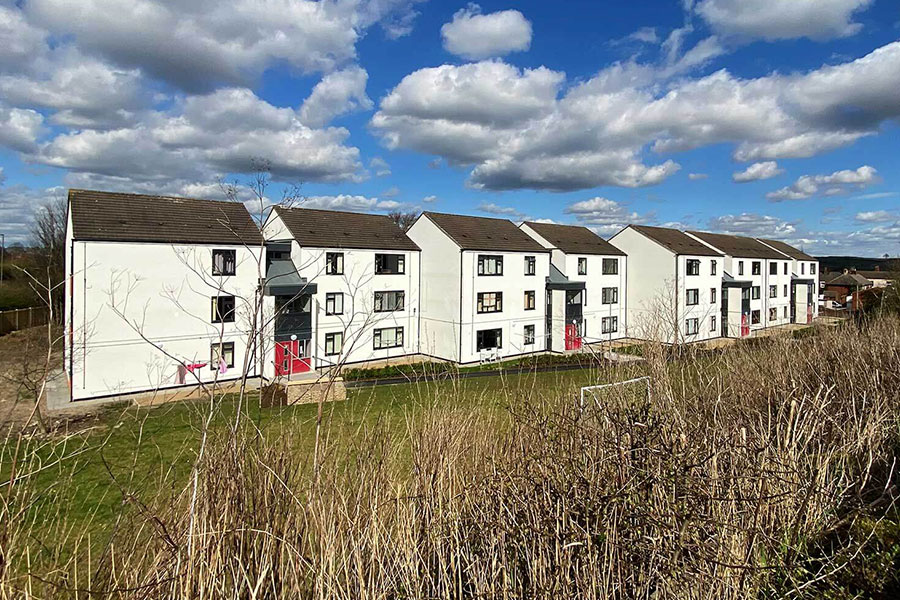If you’re an owner of an energy inefficient home, you may find yourself the proprietors of unsellable and unlettable property by 2028. That’s just 7 years from now.
The Climate Change Committee, which is advising the UK government on how to achieve its net-zero carbon emissions target by 2050, has recommended that all homes should have an Energy Performance Certificate rating of C from 2028.
The CCC says that improving the energy efficiency of UK homes, responsible for about 15 per cent of UK greenhouse gas emission, is key to enabling the government to achieve its target.
EPC is a rating scheme that bands properties between A and G, with an A rating being the most efficient and G being the least efficient.
There are currently about 29 million homes in the UK, of which 19 million have an EPC lower than C according to the CCC’s figures.
In order to improve a property’s EPC rating, an owner will need to make improvements to make it more energy-efficient.
Ensuring adequate loft, underfloor or cavity wall insulation, upgrading to double or triple glazed windows, draught-proofing and hot water tank insulation are just some examples of improvements that can boost an EPC rating.
‘We welcome the report and share the ambition for net-zero by 2050,’ said Rob Wall, head of policy at the National Housing Federation.
‘Buildings are the second-largest source of greenhouse gas emissions in the UK.’
‘We need to decarbonise our homes, and how they are heated, if we are successfully to tackle climate change.
What does it mean for homeowners?
The CCC proposes that all homes for sale must attain an EPC rating of C from 2028 onwards.
Currently, only 29.1 per cent of owner-occupier properties meet the required rating, so widespread changes will be required.
The last gas boiler should be sold in 2033, with the majority of homes needing to be heated by electric-powered heat pumps drawing warmth from the ground. The CCC estimates 415,000 installations per year will be required by 2025 so as to hit a target of 5.5 million heat pumps in homes by 2030.
The report states 700,000 lofts will need to be insulated per year by 2025 – there were only 27,000 lofts insulated in the past year. The committee wants 200,000 cavity wall insulations each year by 2025 when only 41,000 cavity walls were insulated in the past 12 months.
It also recommends solid wall insulation measures to increase to 250,000 a year by 2025, when just 11,000 such works were carried out in the past year alone.
This all comes at a considerable cost for a homeowner.
‘There is a considerable quantity of pre-1950’s housing stock in the UK which, in the main, lack thermal efficiency,’ said James Perris a chartered surveyor for De Villiers Surveyors.
Perris warns that many homeowners will need to switch to electric or hydrogen heating systems, install double glazing and loft insulation, use solar panels and if possible, operate heat management systems to get a C rating.
What does it mean for landlords?
If the CCC’s recommendations are adopted, all private rented and social homes will need to achieve an EPC rating of C by 2028.
The government itself has recently published a consultation on ‘Improving the energy performance of Privately Rented Homes in England and Wales in which it proposes bringing this further forward for some landlords with all new tenancies requiring a C rating by 2025.
If the government follows the advice given, many landlords will need to make significant energy-efficient changes or face being unable to let their properties.
In the private rental sector, 32.6 per cent of homes have the highest energy ratings of A to C.
This leaves over two-thirds of rental properties requiring work in order to meet those targets.
According to the government’s own recent consultation, around 3.2 million privately rented properties in England and Wales have an EPC rating of D or below.
‘If Ministers want to achieve these highly ambitious aims, they need to recognise the challenges the sector faces,’ said Chris Norris, policy director for the National Residential Landlords Association.
‘Over 32 per cent of private rented homes were built before 1919, higher than any other tenure. These are the most difficult to improve.’
Get A Green Homes Grant with Westville
In August, the government unveiled a green homes grant available to those making energy-efficient improvements to their homes.
Homeowners and landlords in England can apply for a voucher towards the cost of installing energy-efficient and low-carbon heating improvements to homes, which could help save up to £600 a year on energy bills.
The government will provide a voucher that covers up to two-thirds of the cost of qualifying improvements to your home.
The maximum value of the voucher is £5,000.
You may be able to receive a higher level of subsidy if you are a homeowner and either you or a member of your household receives one of the qualifying means-tested benefits, covering 100 per cent of the cost of the improvements.
The maximum value of these vouchers is £10,000. Landlords cannot apply for the low-income part of the scheme.
Speak to Westville today to find out how you can get a Green Homes Grant today.

